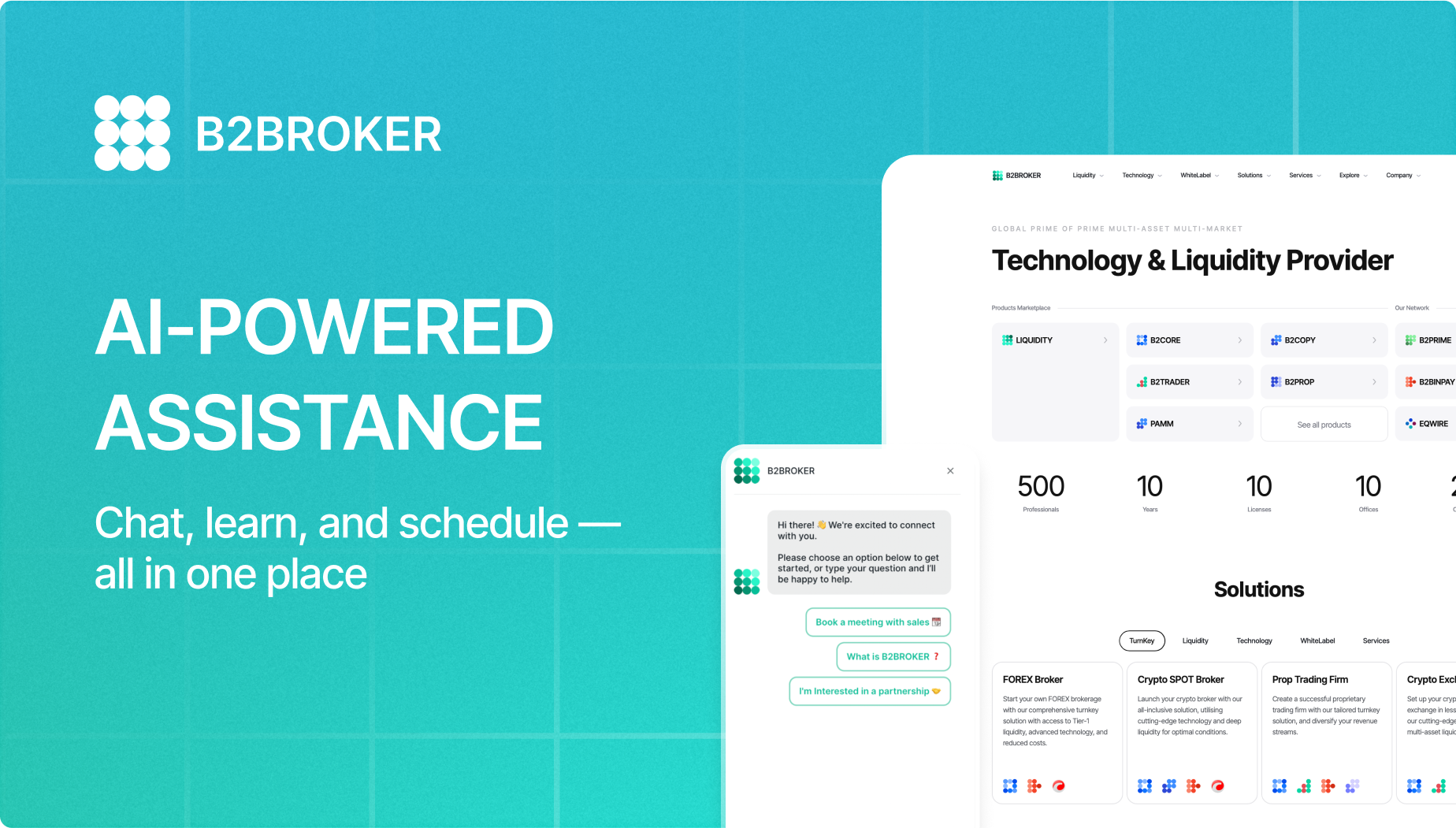Getting a Crypto Exchange License in Estonia and Other Regions
Articles

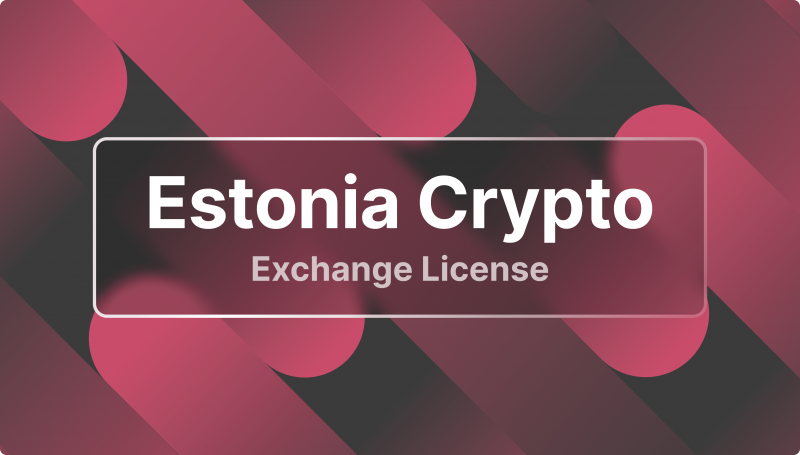
Operating in the crypto market involves various challenges that require a vast understanding of dynamic market changes, regulatory reforms and the significant speculative nature of most assets, making it the most volatile market.
The first step in launching your crypto business is acquiring a license allowing you to carry out custodial or conversion functions between crypto and fiat currencies. A few countries emerged as the source of exchange licensing, such as Estonia, Malta, Gibraltar, Lithuania, Malaysia and others.
Crypto exchange license in Estonia is the frontrunner of decentralised platforms and providers that offer custodial and exchanging services. The framework offers detailed guidelines on the required documentation and steps to obtain a crypto license. Let’s review what you need to know to become a licensed crypto exchange.
Key Takeaways
- Estonia offers one of the most crypto-friendly environments for crypto exchanges and wallet providers.
- Licensed crypto exchanges in Estonia are not subject to corporate tax or double taxation.
- Estonia’s license for crypto companies allows entities to operate as a crypto-fiat-crypto exchange platform or a wallet service provider.
- Other countries, such as Lithuania, Hong Kong, Malaysia and Dubai, offer a competitive environment for crypto exchange companies, with a lenient tax system and boosted procedures.
Understanding Crypto Exchange License
The regulations for crypto payments and exchange platforms change frequently. Some countries are becoming more lenient for crypto services, while others impose strict rules on storing and trading virtual currencies.
Additionally, market prices for most cryptocurrencies change rapidly, especially during market bull runs or bearish sentiments that drive traders’ activities and affect dealing desks and exchange platforms.
Therefore, obtaining a crypto exchange license in Estonia allows you to legally carry out a crypto-related business and stand out from the huge number of service providers by being a legitimate operator that abides by clear-cut regulations and frameworks.
Not only does a license attract more clients who prefer working with a legal entity, but it also provides backing when unexpected market events prevail or the regulatory landscape changes.
How to Get Estonia Cryptocurrency Exchange License
Estonia is a common destination for crypto exchange platforms aiming to capitalise on the growing market trends and the increasing number of crypto investors and traders. In 2017, Estonia passed a law that allows entities to apply for a business permit to operate as a crypto-fiat exchange service or a decentralised wallet provider.
The regulations impose strict guidelines for companies that engage in exchanging cryptocurrencies with fiat money, with thorough KYC and AML protocols to mitigate money laundering and avoid accommodating financial criminals.
Once an operator gets an Estonian permit, they can legally offer cryptocurrency exchanges and wallet services to clients in Europe.
The process of getting the permit can extend up to six months and requires a deposit of €10,000 as an application fee to the Estonian Ministry of Finance. Additionally, the application also requires owning €100,000 as a starting capital with a physical office, local working force and internal auditing.
In 2022, the legislation updated the crypto exchange guidelines, adding more requirements for registering new investors, obligating them to process and verify the user’s name, ID number, date and place of birth and proof of the used payment method, whether a virtual wallet or a physical credit/debit card.
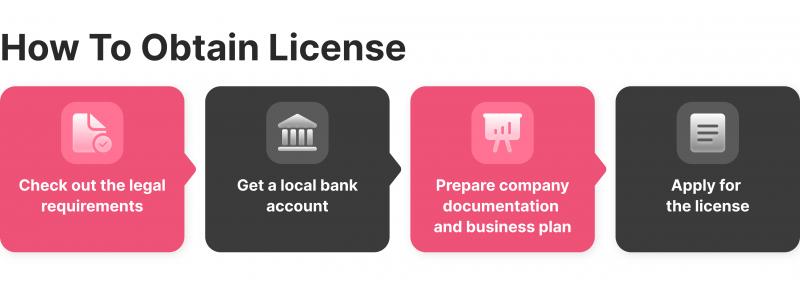
Legal Provisions of Estonia Cryptocurrency Exchange License
According to Estonian regulations, crypto exchanges can offer on-ramp and off-ramp operations, allowing users to swap virtual with fiat currency and vice versa. The other category that falls under the legislation allows virtual currency service providers to offer crypto storage services using cold and hot wallets.
The regulatory authorities also require the submission of a business for the coming two years with a clarification over the allocation of capital within the business structure.
A licensed crypto exchange in Estonia must provide guidelines for internal auditing data with annual reports, as well as prepare the corporate KYC and AML protocols in accordance with the license.

Tax Requirements
Businesses that deal with cryptocurrencies in Estonia are not subject to any special or industry-specific taxing requirements. Therefore, an Estonian-licensed crypto exchanger will follow the same tax code and regulations as any locally registered business, according to the Estonian Tax and Customs Board (ETCB).
However, the benefit of starting a virtual currency service provider in Estonia is utilising the regional and global trade agreements to protect your company from double taxation between two different countries.
Estonia has recently increased the value-added tax from 20% to 22%, applicable from 2024.
Requirements for The Estonia Crypto Exchange License
The Estonian Financial Intelligence Unit (FIU) is tasked with investigating applicants’ documentation and ensuring full compliance with anti-money laundering practices.
- The applicant’s members, beneficiaries, and managers should not be prosecuted for money laundering or other criminal charges.
- The organisational body, owners and managers must have a proper business reputation, assessed by the authorities based on previous activities and plans.
- The appointed contact person must acquire adequate personal and professional qualifications, experience, and qualities, as well as not having a criminal record.
- Applicant business must have a legal office address in Estonia. In the case of a foreign entity, they must work through a branch located in Estonia.
- The legal compliance team must have contact with the state AML agency, have direct access to the risk portfolio, and provide documentation and reports whenever required.
- An applying entity must have a bank account provided by a financial institution registered within the Estonian system.
The Process of Getting a Crypto Exchange License in Estonia
A business entity must submit its application electronically through the state portal: https://mtr.ttja.ee/ and include the following details.
- The physical office address in Estonia with the right documentation that proves ownership/lease of the property.
- Contact and personal details of the person in charge of communication, delivering the mentioned service, the PR representatives, the attorney, and the financial transactions’ conductor.
- Guidelines for internal procedures and quality control measures.
- The business owner or beneficiary shareholders’ criminal record(s), identification card(s), positions and duties.
- The corporate bank accounts, including the one registered within the Estonian banking system.
- Detailed information on the crypto assets to be provided by the company.
- Provide proof of funds in euros with a bank statement confirming sufficient funds.
- Business plan for the upcoming two years.
- Name and contact details of internal/external auditing body.
- Description of technical aspects, such as website, platforms, and the technological solutions used and offered by the company.
The crypto exchange license cost includes an application fee of €10,000, and the application process usually takes 60 days. However, depending on the procedures’ complexity, it might take up to 6 months.
Why Do You Need a Crypto Exchange License?
Estonia offers one of the most transparent guidelines for virtual currency services, with clear-cut rules on what’s allowed and what’s not. Additionally, service operations are entitled to 0% taxation imposed on corporations, also known as “double taxation”.
Crypto exchange companies in Estonia benefit from not having to pay annual permit fees, the availability of crypto asset accounting guides, and the highly secure crypto business environment. In fact, Estonian regulators have revoked over 1,800 licenses due to misconduct while remaining one of the largest issuers of crypto permits.
Alternative Crypto License Options
Besides the robustness of Estonia’s permit, there are other crypto exchange licenses for sale that you can get to expand your reach and introduce your services to new markets. Let’s talk about these licenses and how you can get them.
How to Get a Crypto Exchange License in Lithuania
Lithuania is one of the top countries in the freest economy and ranks 11th in the easiest locations to launch a business, making it a favourable place for any crypto company looking to become fully regulated.
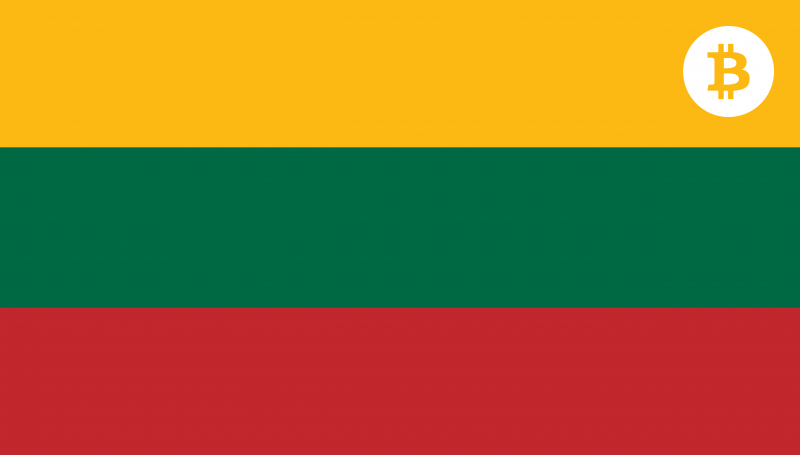
There are two types of permits under this jurisdiction: crypto exchange and virtual currency wallet provider. Regardless of the business type, the company must provide a capital share of at least €125,000.
Crypto servers under this license can carry out the following activities:
- Crypto-crypto and crypto-fiat-crypto exchanges.
- Wallet custodial services.
- Process virtual currency transfer service through third-party providers.
- Operate crypto investments, such as staking.
- Issue ICOs only for utility tokens.
Labuan Crypto Exchange License Requirements
Labuan is a federal territory that belongs to Malaysia, and it has surfaced in the crypto exchange licensing landscape thanks to its favourable tax system and regulations.

Businesses in Labuan benefit from the low corporate tax rate of 3%, besides the usual VAT in Malaysia of 24%. In the last few years, Labuan introduced major reforms that allow crypto companies to benefit from business insurance, a virtual banking system and digital intermediaries.
Applicants must provide a share capital of $150,000 minimum, with an application fee of $1,500. Additionally, companies are not required to have a local partner and can operate completely as a foreign entity.
Getting a Dubai Crypto Exchange License
The United Arab Emirates is one of the most popular destinations for virtual asset service providers and blockchain companies, benefiting from the lenient regulations towards these companies and Dubai’s advanced role in promoting Web 3.0 utilities.

VARA – Virtual Asset Regulation Authority, is the regulatory body of virtual assets and activities in Dubai, which governs the crypto business landscape and trading activities in the Emirate.
Dubai offers one of the most attractive tax rates, with a 5% VAT for the use of cryptocurrencies to purchase operational supplies. The corporate tax (9%) is only applied if your annual returns exceed AED 375,000 ($102,000). Otherwise, it is not applicable.
Getting a Malta Crypto Exchange License
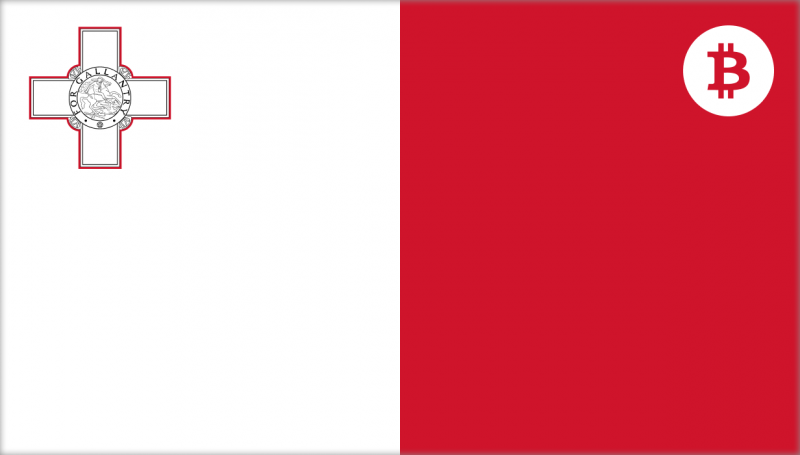
Malta is one of the first European countries to regulate cryptocurrency services and operations, offering a fully regulated license. There are four categories of Malta crypto licenses:
- Cryptocurrency advisory services.
- Provide crypto wallets, custodial services, and P2P transactions.
- Over-the-counter trading and crypto market makers.
- Full crypto exchanging and trading license with investor protection.
Transactions using cryptocurrencies are not subject to taxes in Malta. However, purchasing cryptos to supply the exchange/trading platform is subject to 18% VAT and the corporate income tax amounts to 35%.
The application fee and minimum required capital depend on the type of the permit, starting from €50,000 capital and €6,000 application fee for the first tier.
Becoming a Licensed Crypto Exchange in Malaysia

Malaysia is one of the most technologically advanced countries in Asia, offering a reliable crypto license to carry out custodial, on-ramp and off-ramp exchanges to users around the world.
The country offers a clear-cut tax rule for businesses, entailing a 3% corporate tax, no sales tax and no dividends tax. Non-local companies can operate as 100% foreign entities without having a local partner or representative.
How to Get an Indonesia Crypto Exchange License

Indonesia has recently introduced critical reforms for virtual assets, including the first bourse for crypto assets, called the Commodity Future Exchange. This bourse works like NASDAQ but for virtual currency services and requires all crypto companies to register in the national registry.
The Commodity Futures Trading Regulatory Agency also acts as the country regulatory for crypto activities. The minimum capital required to operate can be considered hefty, where crypto exchanges must provide $16 million in shared capital to operate, while crypto trading platforms have to double the amount to become licensed.
Indonesia allows the following crypto companies to legally work in the country and offer services to local and global investors.
- Crypto futures exchanges.
- Crypto settlement clearing houses.
- Storage wallets for crypto assets.
- Crypto trading.
How to Become a Licensed Crypto Exchange in Hong Kong

Hong Kong is a leading destination for blockchain projects, crypto platforms and Web 3.0 companies. It was named as the most crypto-ready country in 2022, with over 100,00 startups in this industry.
Hong Kong crypto license offers significant access to regional and global investors and markets, allowing companies to expand their reach and grow with 0% capital gain taxes.
Applicants for this license must pay an application fee of $10,000 and provide a minimum capital share of $1 million.
The tax system also provides a clear framework for companies, entailing 0% on any profits generated outside the country, 8.25% for profits less than $2 million per year, and any profits over that are subject to 16.5% corporate tax.
Conclusion
Getting an Estonia crypto license has become common among exchange and virtual wallet providers. The country emerged as a famous destination for crypto companies, benefiting from clear regulations and easy access to the global market.
Estonia’s cryptocurrency exchange license imposes no corporate or dividend gain tax, while the only applicable tariff is the value-added tax of 22% with no double taxation and no annual renewal fee.
Other countries, such as Lithuania, Labuan, Malta, and Hong Kong, have also emerged as sources for crypto licensing, offering one of the friendliest environments and regulations for setting up a virtual currency exchange service provider.
FAQ
How do I register for cryptocurrency exchange?
The application requirements and process vary between countries and jurisdictions. However, most regulatory frameworks ask for the company board members’ details, business portfolio, business plan, clear criminal record, minimum capital share, and an application fee.
Is crypto regulated in Estonia?
Yes. Only licensed companies can offer crypto services in Estonia, such as wallet and virtual currency exchange services. Applying for the Estonia crypto permit requires a minimum capital share of €100,000 and imposes 0% corporate tax.
Which country is the easiest to get a crypto license?
Estonia, Lithuania and Malta are among the countries that offer easy access to a reliable crypto exchange license. However, Hong Kong is considered the most crypto-friendly country with the largest number of blockchain-based startups and businesses.
How do I get a cryptocurrency license?
First, you need to decide the jurisdiction you want to get based on your location and target market. Once you find a proper framework to operate, review their legal environment and regulations toward cryptocurrencies and apply for a license according to the rules.








